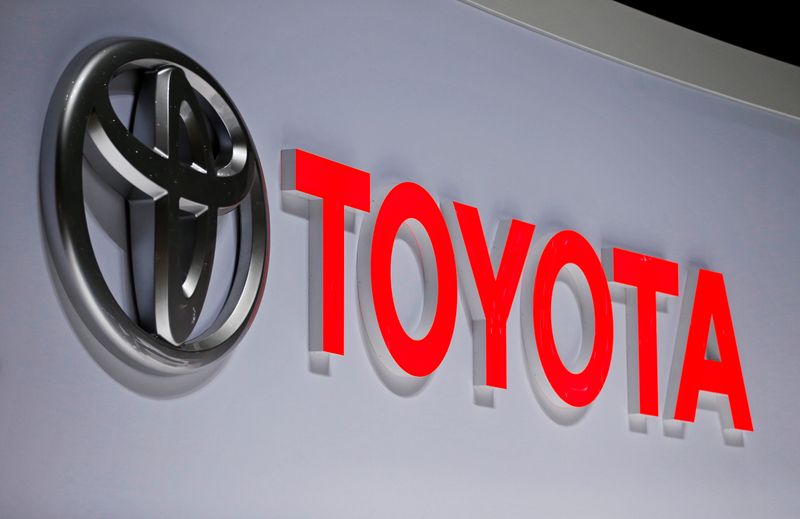By Naomi Tajitsu
TOKYO (Reuters) - Toyota Motor Corp (T:7203) on Friday said production at all of its China plants would remain suspended through Feb. 16, joining a growing number of automakers facing stoppages due to supply chain issues as the coronavirus spreads.
The Japanese automaker, which operates 12 vehicle and components factories in China, said it would extend its production stoppage "after considering various factors, including guidelines from local and region governments, parts supply, and logistics.
"For the week of Feb. 10, we will be preparing for the return to normal operation from Feb. 17 and beyond," it said in a statement.
The decision extends Toyota's initial plans to suspend operations through Sunday, and comes as the threat from the coronavirus crisis closes in on the global auto industry.
A growing number of car makers are flagging the possibility that their global operations could take a hit if they cannot access parts supplies from China, where there are transportation bans to stop the virus spreading.
Fiat Chrysler Automobiles NV (MI:FCHA) on Thursday said one of its European plants could close within two to four weeks if Chinese parts suppliers cannot get back to work soon, while Hyundai Motor Co (KS:005380) earlier this week suspended production at its South Korean plants due to a shortage of China-made parts.
Parts made in China are used in millions of vehicles assembled elsewhere, and China's Hubei province - the epicenter of the coronavirus outbreak - is a major hub for vehicle parts production and shipments.
To limit the spread of the virus, Chinese authorities have announced an extended holiday period in Hubei and 10 other provinces, which account for more than two-thirds of the country's vehicle production.
IHS Automotive projects plant closures through Feb. 10 would result in a 7% cut in vehicle production in China for the first quarter.
In a note, its analysts said extended closures into March may result in lost production of over 1.7 million vehicles for the period, a decline of roughly one-third of pre-virus output expectations.
"If the situation lingers into mid-March, and plants in adjacent provinces are also idled, the China-wide supply chain disruption caused by parts shortages from Hubei, a major component hub, could have a wide-reaching impact," they said.
Other industry experts said suppliers had built up a cushion of parts in inventory and in-transit ahead of the long Lunar New Year holiday in late January. Those will start to run out if factories cannot get back to work next week, or if flights to and from China remain limited.
Toyota said its plants outside China were operating as normal for the moment.

On Thursday, a company official told reporters the automaker was considering the possibility of manufacturing parts commonly made in China in other regions, to minimize the impact of China plant stoppages on its global production network.